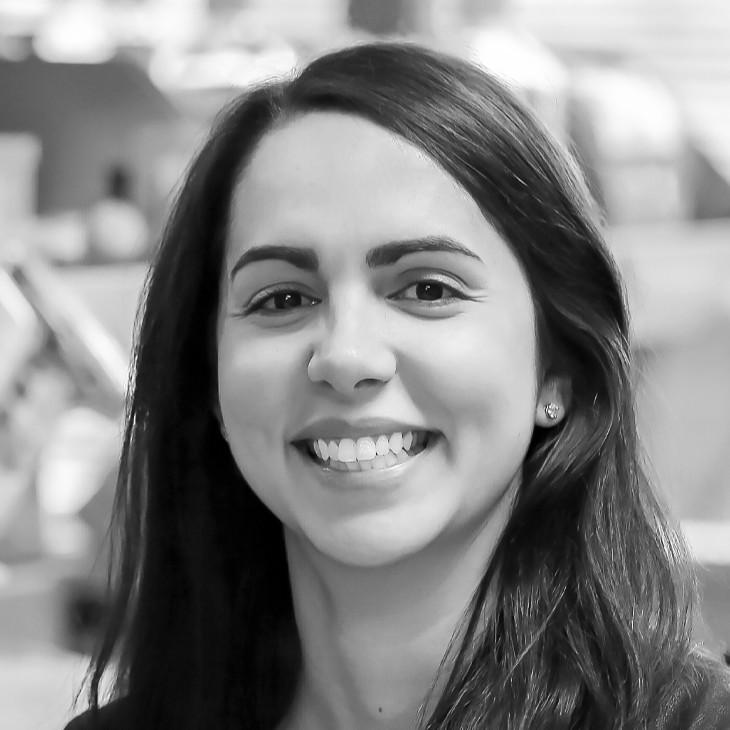As a child, Corrie Ortega played with circuit boards. Her father, an electrical engineer, set them up for her to nurture her natural curiosity for science and mathematics. This early encouragement and exposure sent Ortega down a path to breaking glass ceilings in healthcare technology and business.
Ortega, who grew up in Chicago, received a bachelor’s degree in public health from Johns Hopkins University. She was originally pre-med, but an independent study in a malaria research lab opened her eyes to the exciting intersection of healthcare and technology.
“When I joined the infectious disease lab, I started to make the connection between driving better patient outcomes through technology,” said Ortega. “That felt fitting to me because it was a way to support communities through something I love and in a way that could be impactful on a global scale.”
To develop her expertise in public health, infectious diseases, and research technologies, Ortega decided to pursue a PhD in Pathobiology from the University of Washington Department of Global Health. She did her thesis work on novel therapeutic targets in the tuberculosis space with faculty mentor Christoph Grundner, an affiliate associate professor of global health. This experience gave her the opportunity to build her technical skills and learn about up and coming technologies.
Following graduation, she translated those skills into job opportunities with Intellectual Ventures and Global Health Labs, developing accessible healthcare technologies primarily for women’s health. The years she spent as a research scientist gave rise to a new, complimentary passion: business.
“What I like about the business side of things is that you get this full picture of all the inputs and specifications that will hopefully make something successful,” said Ortega, who defines success as “creating something that's really fitting for the patient community.”
A year ago, she took a major leap on her career path when she became the vice president of operations and product at Ozette, an artificial intelligence (AI) immune-profiling company in Seattle. In her role as cross-functional team leader, Ortega leverages her deep technical knowledge and excitement for collaboration to accelerate the achievement of the company’s product goals and strategic vision.
While Ortega has found success in two fields traditionally dominated by men, her story is sadly not the norm for most women. A significant gender gap exists at all levels of science, technology, engineering, and mathematics (STEM) all over the world. A 2018 study by the World Economic Forum on the Global Gender Gap reported that in cutting edge fields such as AI, only one in five professionals globally is a woman. Only 12% of members of national science academies are women, despite the fact that women make up 33.3% of all researchers, according to the 2021 UNESCO Science Report. This issue is so pervasive and persistent, the United Nations General Assembly declared February 11 as the International Day of Women and Girls in Science.
As a leader in healthcare technology, Ortega knows firsthand how important it is for women and girls to have full and equal access to science. Not only as beneficiaries, but as advocates for change in fields like health and medicine.
“A disproportionate amount of the data we have today tends to not be from women. It tends to be from men and, within that, pretty narrow demographics,” explained Ortega. “If the data initially are biased towards one subgroup, it skews everything downstream of that.”
Throughout her career, Ortega has worked to correct this bias towards men’s health by helping to build more diagnostic and therapeutic “tools for the toolbox” to improve access to quality healthcare for women and address unmet women’s health needs. At Global Health Labs, she served as the technical lead on a new diagnostic tool for HPV, the underlying cause of cervical cancer. Ortega sees Ozette’s AI platform, which helps scientists analyze large amounts of complex immune system data, as a way to help get to the root of overlooked or underserved women’s health issues – like why autoimmune disorders or COVID-19 affect women differently than men.
When asked what can be done to inspire and empower the next generation of women leaders like her, Ortega says mentorship is key.
“Young folks are constantly looking around to see representation of themselves in different roles and if you don't have that it's really hard. I didn't have my first female mentor until after college,” said Ortega.
While she says she’s been lucky to find supportive male mentors, she advices aspiring women scientists to be thoughtful and cautious about who they choose to work with. She says it’s important to find mentors who understand how challenging the road can be for women in science, including the difficulties many ambitious women face in balancing their careers and personal lives. (Ortega is the mother to a five-year-old son.)
Ortega takes her own role as mentor seriously. She volunteers to lead STEM activities for girls in elementary schools through the Association for Women in Science, and does outreach to current undergraduate and graduate students through her two alma maters. She also views her position as vice president as an act of service and works to foster mutual respect, understanding, and empathy on her team.
“With leadership comes great responsibility and the greatest responsibility is setting your team up for success,” said Ortega. “We know from social science that when you have inclusive and diverse teams, they’re more successful. There is diversity in expertise, background, and perspective and, of course, women play a really important role in that.”
